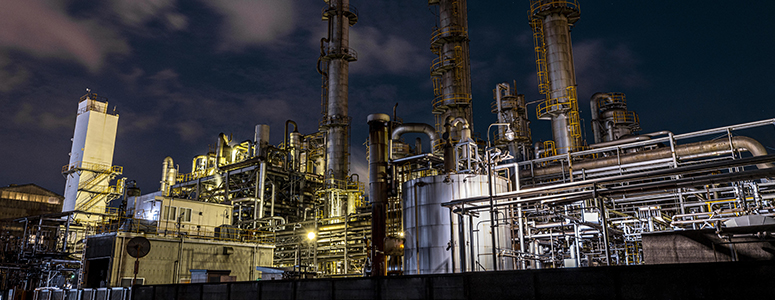Why Chemical Plants Prefer Hydraulically Actuated Diaphragm Pumps
In the demanding environment of chemical processing, equipment selection is critical to ensure safety, efficiency, and operational reliability. Among the various pump technologies available today, Hydraulically Actuated Diaphragm Pump have emerged as a preferred choice in chemical plants across the globe. Their unique design, ability to handle corrosive fluids, and leak-proof operation make them ideal for industries dealing with aggressive and hazardous chemicals.
Understanding the Working Principle
Hydraulically actuated diaphragm pumps are positive displacement pumps that use a hydraulic fluid to flex a diaphragm, which in turn moves the process fluid. This indirect actuation mechanism provides a physical barrier between the hydraulic fluid and the chemical being pumped, offering superior isolation and protection.
The absence of dynamic seals in contact with the process fluid eliminates the chances of leaks, making these pumps ideal for handling toxic, corrosive, or high-viscosity chemicals. The hydraulics offer precise control over diaphragm movement, ensuring stable, pulseless, and controlled flow — a key requirement in chemical dosing and transfer applications.
Unmatched Leak-Proof Performance
One of the main reasons chemical plants rely on hydraulically actuated diaphragm pumps is their zero-leakage design. Leaks in chemical processes can lead to hazardous exposures, environmental violations, equipment corrosion, and safety risks to workers. The pump’s diaphragm acts as a sealed barrier, eliminating the risk of leakage even under high pressure.
In industries handling substances like acids, caustics, solvents, and other hazardous chemicals, leak-free performance is non-negotiable. Hydraulically actuated diaphragm pumps provide this reliability, reducing environmental impact and enhancing workplace safety.
Superior Chemical Compatibility
Chemical plants deal with a wide range of reactive and corrosive materials. From sulfuric acid and sodium hypochlorite to ammonia and chlorinated solvents, the equipment used must be chemically resistant and durable. Hydraulically actuated diaphragm pumps are typically constructed using corrosion-resistant materials such as PTFE, PVDF, stainless steel, and Hastelloy, making them suitable for nearly all types of chemicals.
The flexibility in material selection allows customization of pump components like diaphragms, valves, and housings to meet the exact chemical compatibility requirements of different applications. This adaptability ensures long-term performance even under harsh chemical conditions.
Accurate and Consistent Flow Rates
Precision dosing is a vital process in chemical manufacturing, where even slight variations in flow can affect product quality and safety. Hydraulically actuated diaphragm pumps provide highly accurate and repeatable metering, even at low flow rates. The hydraulic actuation enables fine control over diaphragm displacement, resulting in consistent flow rates regardless of discharge pressure or fluid viscosity.
These pumps can also be integrated with electronic or pneumatic controllers to automate and regulate flow rates, making them ideal for critical processes like pH control, chemical injection, and continuous dosing systems.
Withstanding High Pressures and Tough Conditions
Chemical plants often require pumps that can handle high-pressure operations without performance degradation. Hydraulically actuated diaphragm pumps excel in this regard. The use of hydraulic oil as the driving force provides mechanical strength and damping, enabling the diaphragm to withstand high discharge pressures without rupture or deformation.
Even in continuous-duty or high-load environments, these pumps maintain efficiency and durability. This ruggedness is particularly useful in demanding operations such as polymer dosing, chemical blending, and wastewater treatment involving high-pressure chemical injection.
Maintenance Efficiency and Long Service Life
Unlike other pump types with wear-prone seals or rotating parts in contact with corrosive media, hydraulically actuated diaphragm pumps have fewer components exposed to wear and tear. The diaphragm itself is designed for long service intervals, and in many designs, a built-in leak detection system alerts operators before any potential failure.
This minimal maintenance requirement reduces downtime and lowers the overall cost of ownership. In chemical plants, where downtime can cost thousands per hour, the dependability and ease of maintenance provided by diaphragm pumps translate directly into operational and financial benefits.
Versatility in Applications
These pumps are used across a wide spectrum of chemical processes. From bulk chemical transfer and high-precision dosing to slurry handling and pH adjustment, hydraulically actuated diaphragm pumps handle it all. Their ability to manage varying viscosities, pressures, and fluid characteristics makes them a highly versatile asset in any chemical plant.
They are also suitable for applications involving solids-laden fluids or abrasive chemicals, as the diaphragm action can be engineered to prevent clogging and minimize wear, unlike centrifugal or piston pumps.
Energy Efficiency and Low Pulsation Operation
Hydraulically actuated diaphragm pumps are more energy-efficient compared to many other pump technologies when operated correctly. Their positive displacement mechanism ensures that no energy is wasted in maintaining flow, and the hydraulic system allows for controlled and optimized stroke cycles.
Moreover, these pumps can be designed to operate with low pulsation output, which reduces vibration and improves downstream process stability. This feature is especially beneficial in sensitive chemical reactions or blending operations where flow uniformity is critical.
Environmental and Regulatory Compliance
Chemical manufacturing is subject to strict environmental and safety regulations. The robust, leak-proof design of hydraulically actuated diaphragm pumps helps companies maintain compliance with these regulations. The sealed system minimizes emissions, prevents ground contamination, and enhances overall sustainability of operations.
Additionally, many pump models come with certifications such as ATEX, ISO, and CE, which further support their use in regulated chemical processing environments.
Trusted Quality from Dosimix Technologies
When it comes to selecting reliable and high-performance pumping solutions, quality manufacturing makes all the difference. Dosimix Technologies, based in Ahmedabad, India, is known for offering cutting-edge fluid handling systems tailored to the needs of modern industries. Although renowned for their High Shear Homogenizer Mixers, Dosimix Technologies also engineers high-quality Hydraulically Actuated Diaphragm Pumps that meet global quality standards.
With precision engineering, robust construction, and a commitment to innovation, Dosimix Technologies has become a trusted partner for chemical plants across India and beyond. Their pumps are designed for maximum efficiency, easy maintenance, and long operational life — making them an excellent choice for demanding chemical applications.


